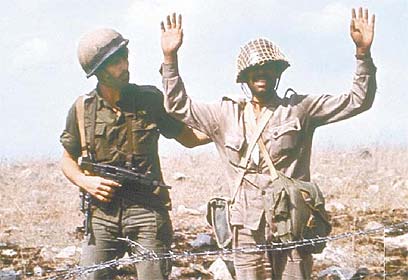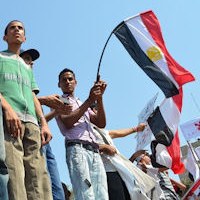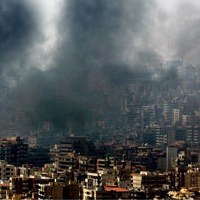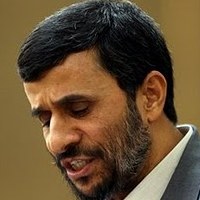![]()
Wed, October 2, 2013 | MEForum | by Efraim Inbar
Originally published in The Jerusalem Post.
The 1973 war shocked Israel. The remarkable military victory was marred by the acute pain over the many casualties and the disappointment with the political and military leadership. The war had lasting as well as passing effects. Generally, Israel is in much better shape today.
As the war ended, Israeli society lost its naïveté and began a process of political maturation. Greater healthy skepticism toward state institutions and the IDF developed within the media and public opinion.
The war’s misfortunes also created a political atmosphere that led to greater political pluralism, propelling the Likud into a ruling position. Over time, the conservative instincts of a changing electorate left the Likud as the main political force in the arena.
The 1973 war also underscored the dependency of a small state such as Israel on its superpower patron.
Whatever dreams of self-sufficiency in weapon development and production were entertained in Israel before the war were soon abandoned. Jerusalem learned that it needs close strategic coordination with Washington to secure the capability to act forcefully, as well as freedom of action. This was a crucial corrective to the pre-war hubris that introduced much caution to Israel’s foreign policy.
One important factor that led to the IDF’s recuperation after the initial surprise of the war was the fact that the fighting started at defensible borders and not in proximity to Israel’s heartland. The “1967 borders” could have hardly allowed the IDF to regroup and counterattack. This is an important lesson for the future that seems to have been internalized by a significant part of Israel’s decision-makers.
The deliberations about the reasons for the initial 1973 surprise and the resulting military debacle indicated a clear need for expanding the circles that engage in the study of national security issues. This has led to a more pluralist intelligence establishment, although the IDF still plays a major role in supplying national estimates. Moreover, the IDF and other government agencies have gradually opened up, though not enough, to inputs from outsiders. Think tanks, such as the Institute for National Security Studies at Tel Aviv University and the Begin-Sadat Center (BESA) for Strategic Studies at Bar-Ilan University, have become participants in the national security debates and have offered alternatives to governmental policies. Nevertheless, strategic surprises may happen, which means that Israel still has to prepare itself for worst-case scenarios and should not succumb to rosy wishful thinking.
The 1973 war also left Israel vulnerable to attempts to isolate it in the international arena, particularly since the Arabs effectively used the oil weapon. Many states severed relations with Israel, and the UN General Assembly adopted the infamous resolution that equated Zionism to racism. This resolution has since been rescinded and Israel is hardly isolated in the international arena; it is viewed as a successful state with which many countries seek to establish bilateral ties.
In historical terms, the 1973 victory taught the Arab leaders that even under most auspicious conditions they cannot eradicate the Jewish state by force. While Israel failed to hold on to the position that changes in the territorial status quo require peace agreements, and instead accepted interim agreements, the military outcome of this war brought about the change in Egypt, the largest and most important Arab state that eventually decided to make peace with Israel.
The war was the last attempt by Arab armies to invade Israel. For a variety of reasons, the likelihood of a large-scale war was drastically reduced. Today, the Arab world is in disarray as result of a colossal socioeconomic and political crisis. The Arab predicament makes the possibility of a large-scale war even more distant.
The 1973 war led to the establishment of two influential extra-parliamentary movements: Peace Now and Gush Emunim. Their ideological underpinnings had a strong polarizing effect on Israeli society. The consensus has since been restored as these two movements lost their grip over the vision of the large majority of Israelis. Most Israelis now support partition of the Land of Israel, but no longer believe that peace is around the corner, despite their willingness to make territorial concessions.
Forty years after the 1973 Yom Kippur War, when the fear of losing the “Third Temple” was voiced, Israel prospers and the power differential with its neighbors has greatly widened. Its society displays significant social resilience and readiness to meet the challenges of continuous conflict. This is critically important, since the old calls to destroy the Jewish state continue unabated, and one fanatic foe, Iran, is assiduously working to acquire WMD [weapons of mass destruction] capabilities.
Efraim Inbar, director of the Begin-Sadat Center for Strategic Studies, is a professor of political studies at Bar-Ilan University and a fellow at the Middle East Forum.



 RSS
RSS











Latest Comments
Hello Mike, Thank you for your positive feedback to the article. I felt there wasn’t too much critical analysis of ...
Thanks for this considered and well constructed article. A follow up article on the manner in which the editorial contro...
THE CLUELESSNESS OF CLAIMING THAT OBAMA'S MIDDLE EAST POLICIES WERE A FAILURE CANNOT BE FURTHER FROM THE TRUTH, WHAT THE...
As long as Obama is the president of the usa do not trust the us government......
Thank you for an good read....